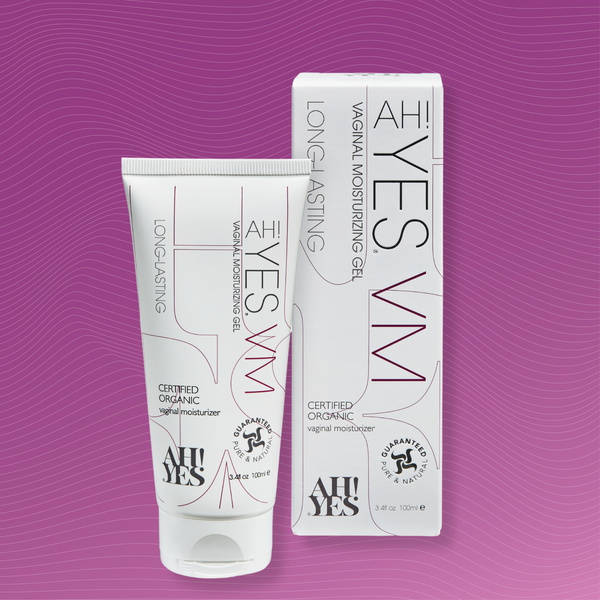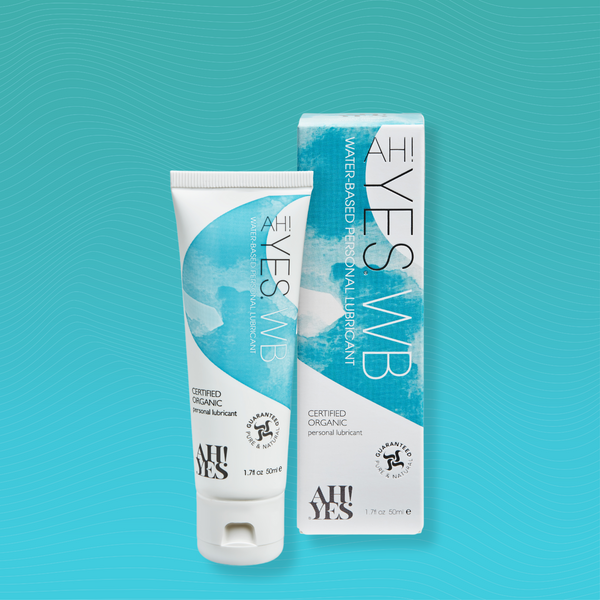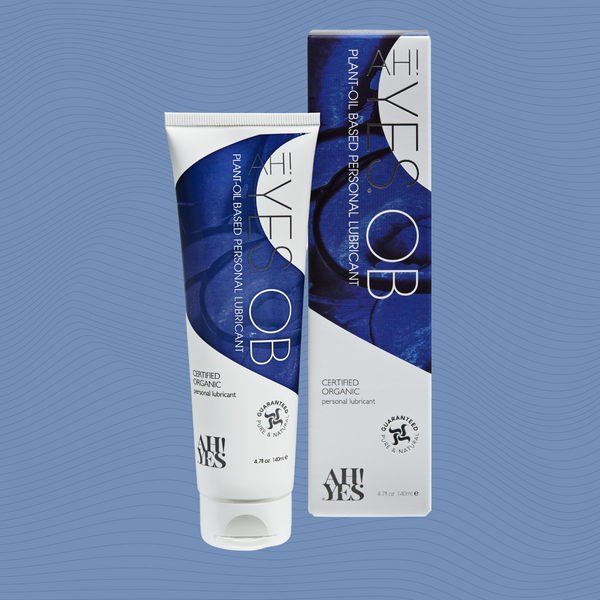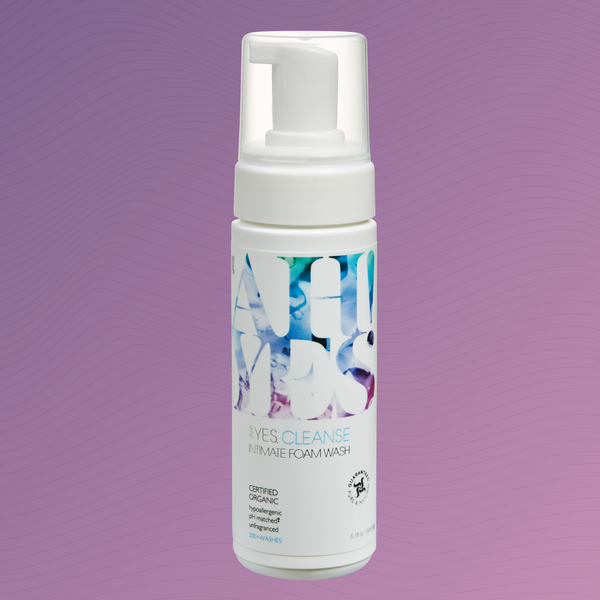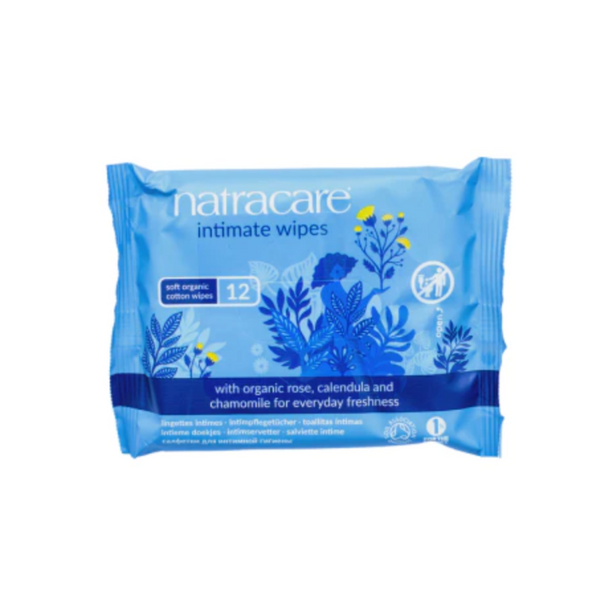Becoming a mom can be an amazing and life-changing experience, but it can also bring some physical challenges, especially during the postpartum period. Let's be real, your body has been through a lot in these past few months. From the hormonal changes during pregnancy to childbirth, you might not feel quite like yourself down there. That's why paying attention to your body and taking care of your intimate health is crucial during these early months and beyond.
Many women experience vaginal dryness and even painful sex after childbirth and while breastfeeding. These symptoms can be distressing and have a significant impact on overall well-being and intimate life. But why does this happen, and what can we do about it?
Is breastfeeding the cause of my vaginal dryness?
Understanding the Connection Between Breastfeeding and Vaginal Dryness
During lactation, hormonal changes can lead to a decline in estrogen levels within your body. Estrogen plays a vital role in maintaining vaginal lubrication and elasticity. [1] However, reduced estrogen levels during breastfeeding and post-childbirth can result in vaginal dryness, leading to discomfort or even pain during intercourse or penetration.
As a new mom, you might be experiencing both emotional and physical exhaustion, which can contribute to a decrease in libido (sexual desire and arousal). Who can blame you if you find yourself not in the mood for intimacy during this time? If concerns about vaginal dryness or discomfort during sex arise, it's important to communicate openly with your partner and consult your doctor. It’s also important to rule out any infections or injuries that could be causing or exacerbating the issue.
How long will vaginal dryness during breastfeeding last?
The duration of vaginal dryness during breastfeeding differs for each woman. Several factors come into play, such as hormonal fluctuations, the frequency and intensity of breastfeeding, and the woman's overall health. Typically, for most women, this dryness is temporary and tends to improve as breastfeeding frequency decreases and menstruation returns. [2]
Remedies for vaginal dryness in breastfeeding
- Communicate with your partner: It's essential to have open and honest communication with your partner about your feelings and experiences. Being supportive and understanding of each other's needs during this time can strengthen your relationship.
-
Lubricants: Vaginal dryness and discomfort during sex or penetration can be alleviated by using water-based or oil-based lubricants. These products can enhance comfort and reduce friction, making the experience more pleasurable. You might want to try YES® WB, our intensely hydrating organic water-based lubricant designed to feel completely natural without leaving any stickiness. If you prefer a thicker consistency, AH! YES® OB, our organic plant-oil-based lube, is long-lasting and soothing for dry intimate tissue. AH! YES® COCO is blended with organic sunflower oil, coconut oil and organic jojoba oil providing long-lasting, soothing relief for dry vulval and vaginal tissue. You can use these lubricants together for ultimate comfort.

Vaginal moisturizers: You can use vaginal moisturizers daily to quickly relieve symptoms of dryness and ease associated pain, itching, and burning. AH! YES® VM is a certified organic vaginal moisturizer that lasts up to three days. It's designed to gently replenish moisture levels without the use of synthetic chemicals, hormones, or any known skin irritants. You can use this every day to ease postpartum vaginal dryness.

- lubrication. Take time to explore intimacy with your partner, allowing your body to respond naturally. If you have given birth vaginally, things might feel a little different, so be kind to yourself as you learn what your body needs.
- Stay Hydrated: Drinking plenty of water is essential for overall health, including vaginal health. Staying hydrated can help combat vaginal dryness. [3]
- Pelvic Floor Exercises: Kegel exercises can improve blood flow to the pelvic region and strengthen the pelvic floor muscles, potentially enhancing vaginal lubrication and reducing discomfort. [4]
- Consult your doctor: If the issue persists or causes significant discomfort, it's time to see your doctor. Your healthcare provider can assess your condition and recommend appropriate treatments.
Foods to help vaginal dryness while breastfeeding
According to physiotherapist Helen Kim, consuming certain foods postpartum can help with common concerns such like lack of desire and vaginal dryness. [5]
- Eating avocados. Avocados contain healthy fats that can help to improve vaginal lubrication by promoting higher estrogen levels.
- Almonds and pumpkin seeds. Have high levels of zinc and have been linked with combating postpartum depression and increasing sex drive.
- Leafy green veg. Green vegetables high in magnesium (such as kale and spinach) are thought to play a key supportive role in hormone production and increasing sex drive.
Coping with painful sex and vaginal dryness while breastfeeding can be tough, but it's important to know that you are not alone. By acknowledging the link between breastfeeding and vaginal dryness and applying practical remedies, you can increase comfort and enjoyment. Openly communicating with your partner, receiving their support, and seeking guidance from your doctor are crucial steps toward finding relief. Remember to be gentle with yourself as you navigate this unique phase of your life.
[1] Goodto
[2] Clear Blue
[3] Cleveland Clinic
[4] Everyday Health
[5] Helen Kim
Empower yourself
Read more about the changes your body goes through during peri menopause and post menopause.

